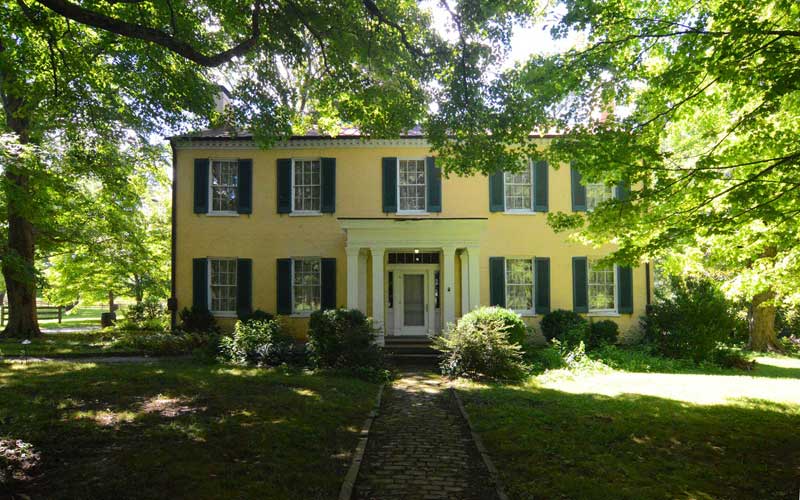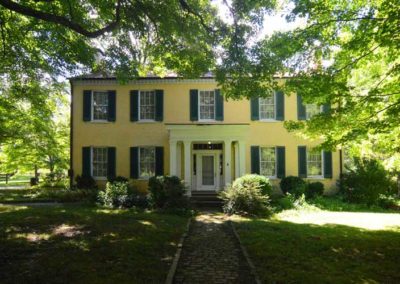
Blackacre
Blackacre

Rural land has all but disappeared in Jefferson County, and with it, our only ties to the history of Kentucky’s earliest settlements.
The Blackacre State Nature Preserve and Historic Homestead preserves the precious traces to our past, that have been all but erased in Louisville’s expansion and development of our rural land.
This rural historic district was added to the National Register of Historic Places in 1986. The pattern of fields, woods, and streams at Blackacre remains much the same as it was well over 200 years ago.
In the 1790s, Moses Tyler built the double-crib Appalachia style barn that still stands today.
Moses deeded his homestead to his son Presley, and in 1844, Presley built the two-story brick house, now known as the “Presley Tyler 1844 Farmhouse”. The house was situated on the old Mann’s Lick Rd. that led to the prominent salt works in the area. By 1879 Tucker Station Rd., named for the nearby railroad stop, had replaced the original road.
The farm was sold in 1879, and again in 1885, and again, and again, and again in 1939, when William and Elsie Woodward bought it for a summer residence, had plumbing and electricity installed, and named the farm ‘Land O’Skye’. Their friends, Jefferson Circuit Court Judge Macauley and Emilie Smith, purchased the farm in 1950, and renamed it “Blackacre”.
In the face of the encroaching suburban development, the Smiths wanted to preserve their land in its idyllic state, so that future generations might see and learn about farm life. In 1979 they donated their 170 acre parcel to the Kentucky State Nature Preserves Commission, while creating “The Blackacre Conservancy”, for the purpose of “preserving the land for passive recreation and interpretive nature education”. It was Kentucky’s first state nature preserve.
The Smith family’s relationship to the Blackacre Conservancy continues today, several additional properties surrounding Blackacre’s original 170 acres have been purchased, to provide a buffer against development.
